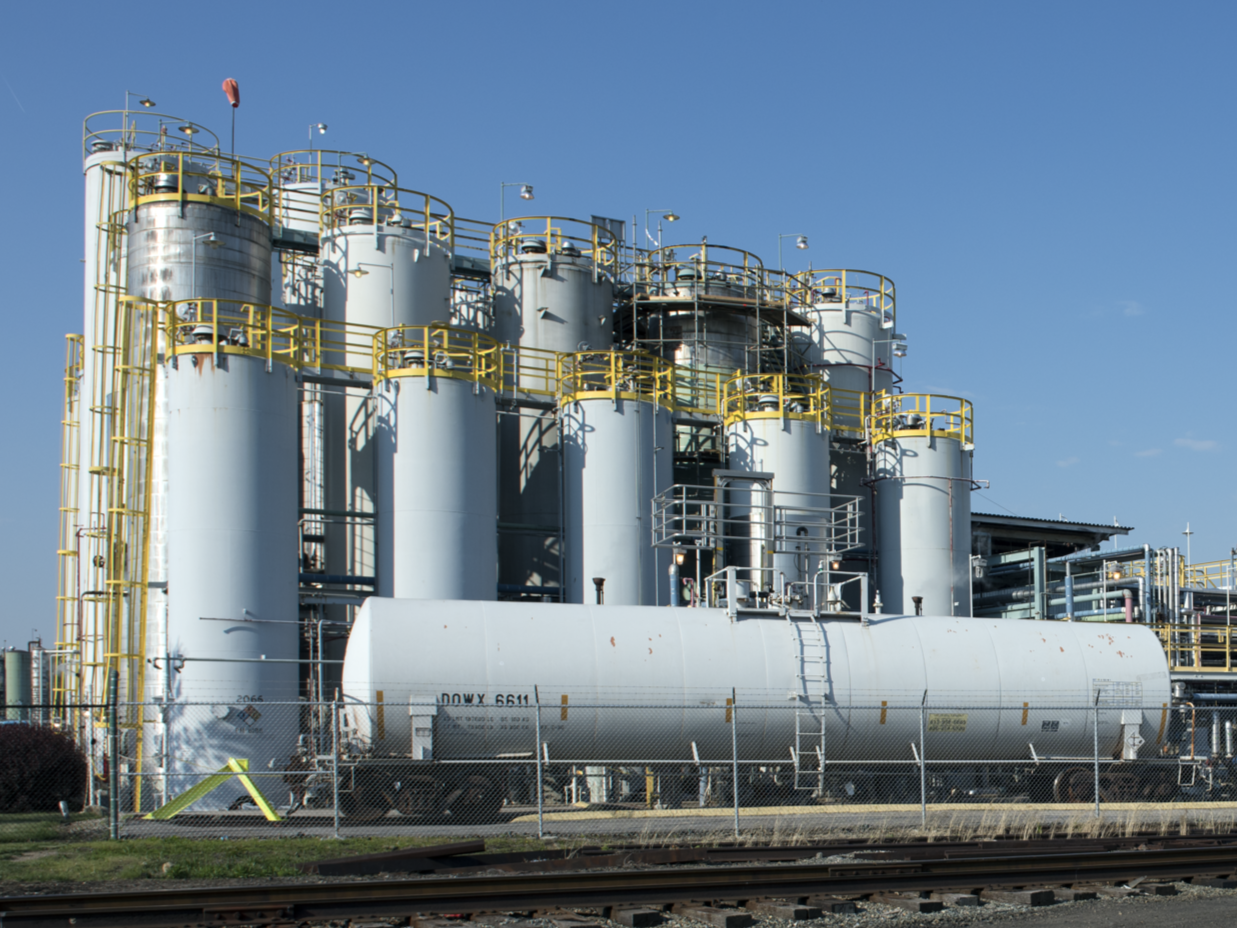A mistrial was declared Monday in a lawsuit filed by West Virginia State University (WVSU) against Dow Chemical after a hung jury.
WVSU filed the suit in 2017, alleging that Union Carbide, a subsidiary of Dow Chemical, polluted groundwater in and around the campus. The trial had closing arguments on Friday, but by Monday the jury was already at an impasse.
In notes provided to the judge by jurors, one of the jurors became hostile, causing a breakdown in the jury’s ability to come to a consensus. According to the notes the juror was being “confrontational” and “offensive” to some of the other jurors.
The Location
Institute is an unincorporated area that lies between the city of Dunbar, home to WVSU and the Union Carbide Chemical Plant.
CH2M Hill East Property Boundary Investigation page 2.
This unincorporated area is home to a Resource Conservation and Recovery Act cleanup site, overseen by the U.S. Environmental Protection Agency. RCRA is a 1976 law that requires the cleanup of hazardous materials.
Briana Heaney/West Virginia Public Broadcasting
The Argument
WVSU says that toxic pollution created by Dow Chemical subsidiary, Union Carbide, is polluting properties owned by WVSU. WVSU claims this pollution makes it more costly for the university to expand because it will have to spend millions to make areas affected by pollutants safe for residential and nonresidential use.
Dow says the company is not responsible, and the Institute Plant site poses no health risks to the community, including its neighbor WVSU.
“Dow Chemical’s Institute Plant has contaminated the groundwater under West Virginia State University with three likely carcinogens, yet Dow refuses to clean up the pollution and pay for the harm,” the plaintiff, WVSU’s Board of Governors, said in the lawsuit.
The EPA found benzene, chlorobenzene, chloroform, carbon tetrachloride, and tetrachloroethene in the ground water at the site. EPA’s remedy requires land and groundwater use restrictions for activities that may result in exposure to those contaminants. Ground water systems are interconnected and do not stop at property boundary lines.
In the court filing, WVSU said Dow is aware of the damage its subsidiary, Union Carbide, has done to the air and ground water.
“Dow admits that the pollution under the university’s property is so serious that no one can live in the polluted area, or even work or study there without special protective measures,” WVSU said in a response to Dow’s motion to dismiss.
The filing states that Dow — not the university — says the WVSU’s property has been so severely damaged that no one can live where the contamination has spread to, and any building on the property requires barriers to block toxic fumes.
Dow refutes this.
“The Institute site poses no health risk to the community, including WVSU, and the data supports this conclusion,” Union Carbide Media Relations said in an emailed statement. “WVSU has repeatedly made the same assertion. UCC (Union Carbide Corporation) has met, and will continue to meet and exceed, all of its remediation commitments with oversight from the U.S. EPA and the WVDEP.”
Dow has been Union Carbide’s parent company since 2001. Dow says it is not responsible for Union Carbide’s every liability. In particular, it’s not necessarily responsible for these instances of Union Carbide’s alleged pollution at the company’s Institute Plant.
“Dow never owned or operated the Institute Plant, foreclosing any argument that Dow may be held directly liable,” Dow said in a court filing.
West Virginia State University can move forward with the litigation by going back to square one, starting a new trial with new jurors in Kanawha Circuit Court. A new date will be established by the circuit court.
Dow Chemical declined an interview request. However, it said in an emailed statement that there are no health risks to the community, including West Virginia State University.
The university and its law firm, Bailey and Glasser, declined to comment on the ongoing litigation.
